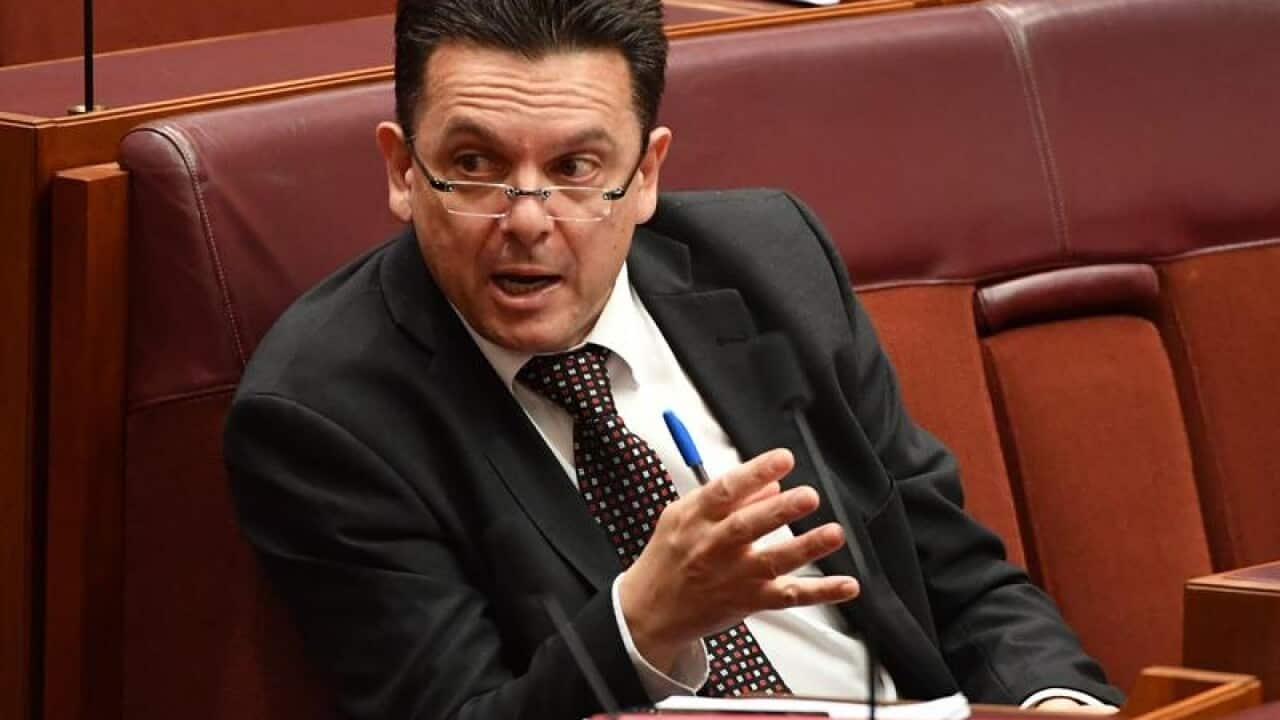The government secured an agreement with the Xenophon team on Wednesday night, clinching his crucial bloc of three votes and paving the way for the package to be rubber-stamped by parliament on Thursday.
"I've done my level best to try and redress the crisis that journalism is facing in this country," he told reporters.
"This is the best package to ensure that we can actually get more journalists being employed not fewer."
Related reading

Media law reform set to pass parliament
Senator Xenophon admits the changes will allow for a consolidation of the media but says he does not want to see more companies go into administration.
The package's centrepiece will allow a proprietor to control more than two out of three platforms - TV, radio or newspaper - in one licensed market.
It will also repeal the reach rule, which prevents a proprietor exercising control of commercial television broadcasting licences where the combined licence area exceeds 75 per cent of Australia's population.
Other measures include:
- Establish a $60.4 million fund for regional and small publishers with a turnover of less than $30 million to be overseen by the Australian Communications and Media Authority with input from the bodies such as the Press Council.
- 200 scholarships of up to $40,000 a year subsidised by the government. They would not be restricted to smaller publications but would have a regional focus.
- Australian Competition and Consumer Commission inquiry into Facebook, Google and the impact other internet giants are having on the media industry.
Labor and the Greens opposed scrapping the "two out of three" rule, arguing it will lead to a higher concentration of media ownership.
"The sun comes up in the morning, the sun sets at night and the Xenophon party will do a deal for some baubles," Labor senator Doug Cameron told reporters.
Greens leader Richard Di Natale said more voices were needed in the Australia media sector not fewer.
Incentives were also needed to get more journalists on the ground.
"There's no point training cadets if there are no jobs for them," he told ABC radio.
The government already had the support of One Nation on the proviso it would introduce separate legislation to force the ABC and SBS to publish the salaries of employees earning more than $200,000.
One Nation won agreement to have the national broadcasters face an inquiry into "competitive neutrality" and have the words "fair and balanced" inserted into the ABC charter.
Senator Xenophon says he will not support any cuts to the ABC or SBS.
The union representing journalists is in two minds about the Xenophon deal, warning about the loss of ownership diversity.
"Any initiative to support new investment in journalism is welcome but it should not come at the price of existing safeguards being removed," Media, Entertainment & Arts Alliance chief executive Paul Murphy said.








